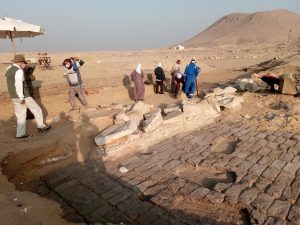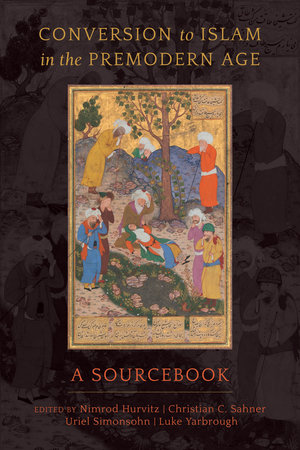Authors: Dr Hana Navratilova and Dr Claudina Romero Mayorga
Date: December 2021
The Department of Classics at the University of Reading celebrated the Egyptian Month with research and teaching activities as well as with the interactive event — Live Forever! Welcome to the Underworld — held as part of the Being Human Festival!
In October 2021, Dr Hana Navratilova spent several weeks working with the Egyptian Expedition of the Metropolitan Museum of Art, New York, at the site of Dahshur in Egypt. At the same time Dr Navratilova continued teaching and serving as our Department’s Director of Academic Tutoring from her desert location, which had surprisingly good internet speed. The site of Dahshur is located south of the Egyptian capital, Cairo, and belongs to a large group of pyramid fields, i.e. necropoleis dominated by Old and Middle Kingdom pyramid complexes (3rd and 2nd millennium BCE).
Photo: A sunset in the desert (credit: Hana Navratilova)
The Metropolitan Museum international team works together with the Ministry of Antiquities of the Arab Republic of Egypt and research teams specialising at the pyramid precinct of Senwosret III, which has a very long history, starting well before this Middle Kingdom sovereign and continuing until the Roman period. The Greco-Roman history of the site involves a large cemetery: the pyramid of Senwosret III was a place of royal burials, veneration, and admiration by generations of visitors. Its lifecycle turned a new page, however, when Ramesses II decided to use it as a quarry, and we are all excitingly waiting for further archaeological research on that aspect of its history to complement our understanding of the ways in which such an ancient site changed over time!
Photo: ongoing excavation in the demolition zone of the pyramid complex at the site of Dahshur in Egypt. Please note that Covid protection measures have been applied at the excavation area and in housing of the teams. Facemasks are now part of archaeological everyday life as are lateral flow tests! (Photo credit: Hana Navratilova)
Dr Navratilova’s area of expertise focusses on the New Kingdom material, so-called visitors’ graffiti, while further research interests revolve around the pyramid biography. Monuments in Egypt have almost always a long history, which requires that we study their use, re-use, and reappropriation across time. This perspective on pyramids helps also in our interpretation of long lives of other Egyptian monuments, including temples. The temples at Abydos, for example, have long been in the focus of religious history and pilgrimage study by Prof. Ian Rutherford.
Photo: earlier drawing of a graffito (credit: Hana Navratilova)
The excavation work at Dahshur is still ongoing and we are truly excited to see what the archaeological spade will bring to light! You can read more about the site of Dahshur at https://www.metmuseum.org/toah/hd/dapc/hd_dapc.htm.
In addition, the Ure Museum of Greek Archaeology and the Department of Classics at the University of Reading hosted the interactive event ‘Live forever: welcome to the Underworld’ on the evening of 19 November 2021 thanks to a generous grant awarded by the Being Human Festival Hub (https://beinghumanfestival.org/events/live-forever-welcome-underworld).
This year’s theme was “renewal”, so we decided to recreate the ancient Egyptian and Greek underworlds. It was no paradox: far from being a terrifying experience, this was a life-affirming event, in which staff and students acted as guides to the Egyptian and Greek ways to eternity. The corridors and lecture rooms of the department were converted into different branches of the afterlife: our mortal guests were allowed to enter Elysium to discuss life and death with heroes of the Classical world, and then were tested by the tribunal of Osiris and the Egyptian gods, where their heart was balanced against the feather of Maat, the goddess of justice. If their life was found to be good, their name was to be remembered forever! In tune with remembrance as the theme of November, we hope to have shown how ancient cultures coped with the challenge of death and loss, which seemed suitable after a world-wide pandemic.
Live forever: welcome to the Underworld not only disseminated a topic extensively researched in the Department of Classics and the Ure Museum to a wider audience, but it also helped to create a sense of camaraderie among undergraduates and academics, especially after two years of lockdown. The event encouraged students to develop their own teaching resources when engaging our audiences: they created stand-up routines, devised new trails for the museum, learnt to play ancient games, etc.
Jenny, one of our students, said: “I am very grateful for the amazing opportunity to teach how to play Senet, an ancient Egyptian board game to our visitors. This was a very popular part of the event which saw children and parents competitively playing the game as well as asking questions about the Egyptian afterlife. Even one girl came up with the idea that the pieces could represent the need for all parts of your ba, or soul, to reach the afterlife to be together in eternal life”.
Harry designed museum trails on Ancient Egyptian and Greek funerary practices and much more: “What I liked most about the festival was the variety of stuff that was happening, meaning there was something for almost everyone who was interested in Ancient History. For those fascinated with drama, two plays were taking place in which students and professors alike dressed up as Ancient fictional characters such as gods and heroes in a re-enactment of the Underworld – one play was about the Egyptian afterlife, and the other about the Greek. Those with a liking for music in Antiquity were likely happy to hear Dr James Lloyd playing the aulos during the festival.”
You can get a taste of how the ancient Greek aulos sounds in this short video with Dr James Lloyd in the Reading Classics corridor: https://twitter.com/i/status/1461791868262440963.
Being Human Festival provided us with a perfect opportunity to recreate ancient Egypt and Greece, to offer an immersive experience to the local community and to show that, no matter how many millennia have gone by, antiquity remains relevant to understand how we cope with loss, time, the human, and the divine.
Follow us on social media:
Twitter: @UniRdg_Classics
Facebook: @UoRClassics
Instagram: @classicsuor
Follow the Ure Museum of Greek Archaeology on social media at:
Twitter: @UreMuseum
Facebook: Ure Museum of Greek Archaeology
Instagram: @uremuseum













